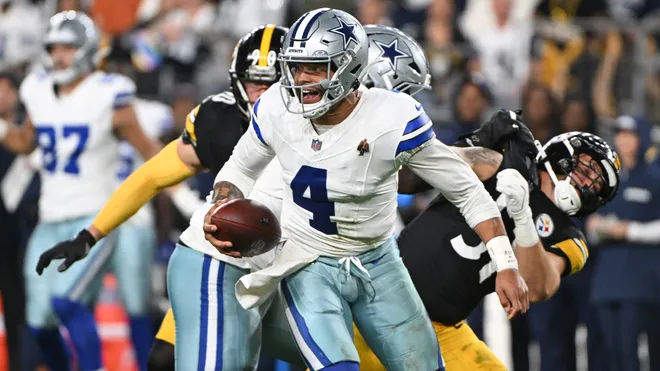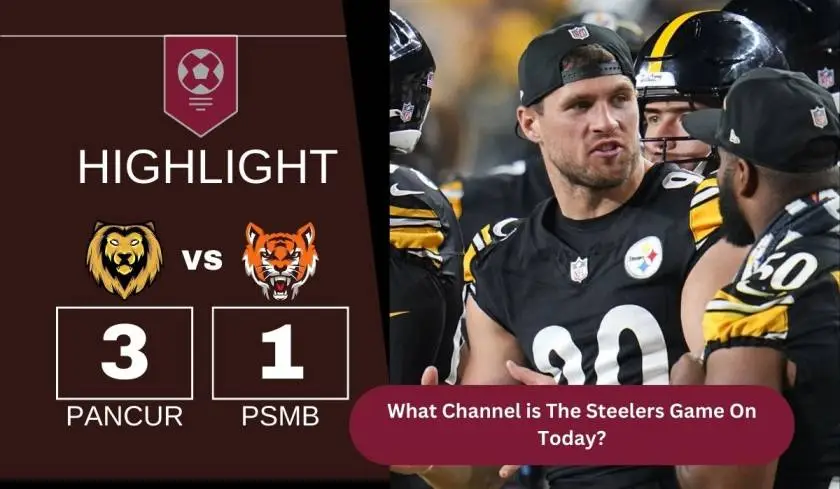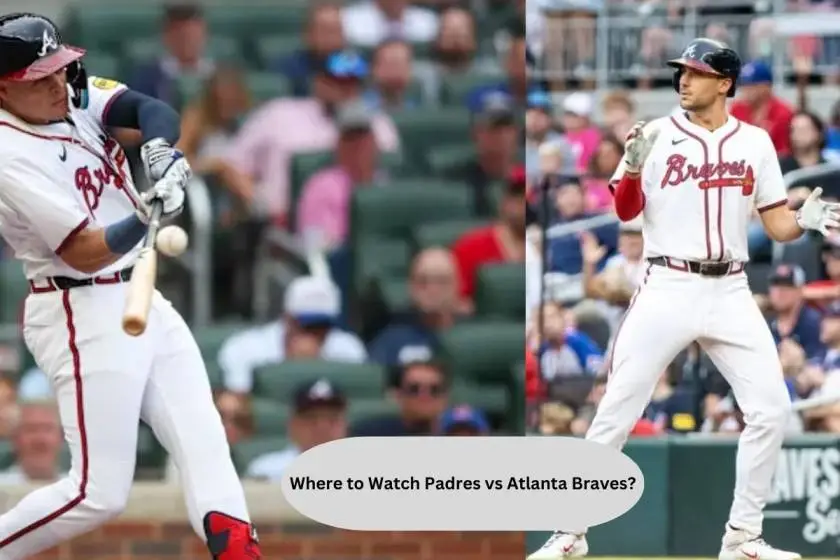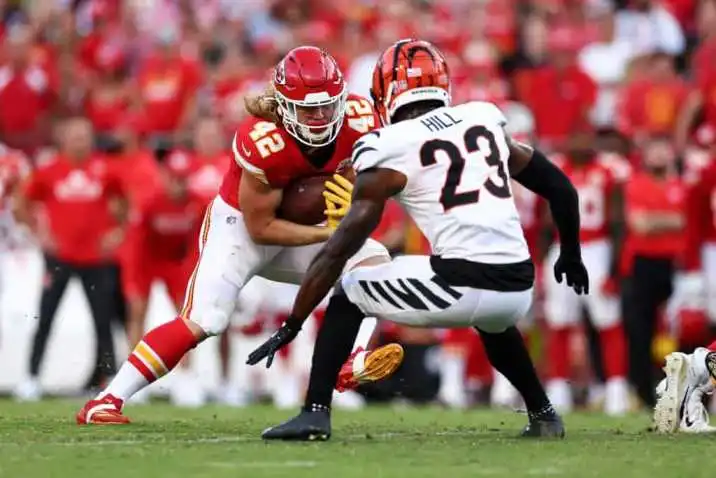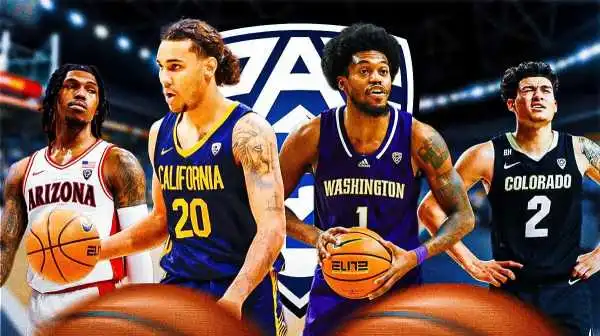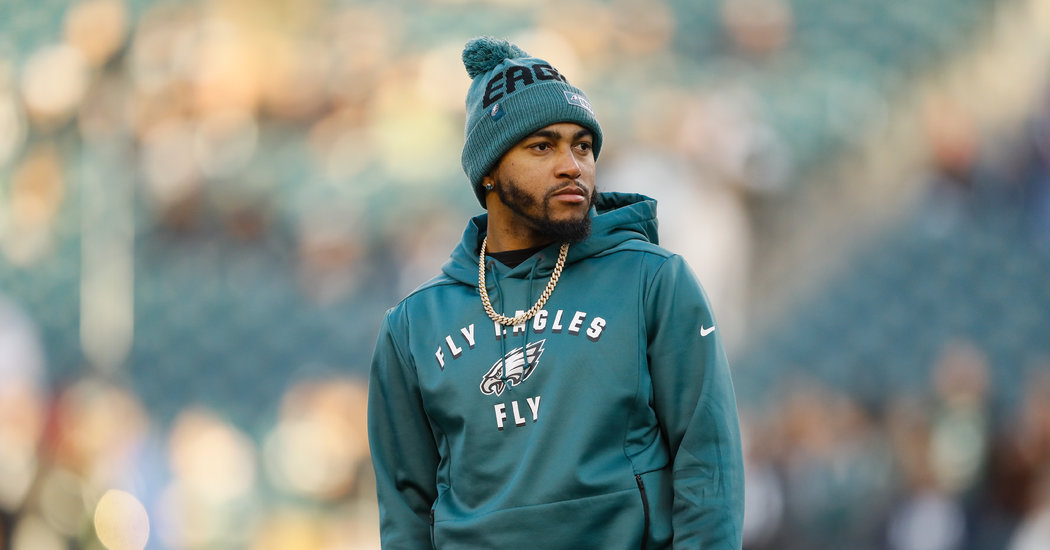
DeSean Jackson Apologizes for Sharing Anti-Semitic Quotation
The star wide receiver DeSean Jackson apologized Tuesday for sharing an anti-Semitic quotation attributed to Hitler, after that and other social media posts were widely condemned, including by his team.
In the series of posts, made on Instagram over the weekend, Jackson also praised Louis Farrakhan, a minister notorious for his history of anti-Semitic comments. Jackson’s team, the Philadelphia Eagles, condemned the posts in a statement on Tuesday, calling them “offensive, harmful and absolutely appalling.”
“They have no place in our society, and are not condoned or supported in any way by the organization,” the team said. “We reiterated to DeSean the importance of not only apologizing but also using his platform to take action to promote unity, equality and respect.”
It was unclear whether Jackson, 33, would be disciplined for his posts. The team said it was “continuing to evaluate the circumstances” in weighing action. “We take these matters very seriously and are committed to continuing to have productive and meaningful conversations with DeSean,” the team said.
Jackson apologized on Instagram, calling it a mistake and writing, “I truly apologize for posting it and sorry for any hurt I have caused.” He said that he “really didn’t realize what this passage was saying” and that “we should be together fighting anti-Semitism and racism.”
On Tuesday evening, he apologized again for “the insensitive and ill-informed posts.” He said on Twitter that he had intended “to uplift, unite and encourage our culture” but had “unintentionally hurt the Jewish community.” He also pledged to “educate myself and work with local and national organizations to be more informed and make a difference in our community.”
In an Instagram story, Jackson had shared a photo of a racist and anti-Semitic quotation attributed to Hitler, which was highlighted on the page of a book.
The quotation appeared in a passage in which Hitler supposedly claimed that he would cause World War III after his death; fact checkers have described the attribution to Hitler as bogus.
The post quickly drew a backlash and prompted Jackson to deny accusations of anti-Semitism on Instagram. He re-shared the quotation in another post, adding, “Anyone who feels I have hate towards the Jewish community took my post the wrong way.”
He continued, “I have no hatred in my heart towards no one!! Equality Equality,” adding several fist emojis in all skin tones.
Over the weekend, Jackson repeatedly praised Farrakhan, the outspoken leader of the Nation of Islam who has frequently been criticized for making anti-Semitic remarks. Jackson praised the minister around the time he delivered an address on the Fourth of July that touched on race relations, Covid-19 and vaccinations. “This man powerful I hope everyone got a chance to watch this,” Jackson wrote. “Don’t be blinded. Know what’s going on!”
He later deleted the posts.
On Monday, the former Eagles president Joe Banner responded on Twitter to Jackson’s comments, calling them “absolutely indefensible.”
He wrote, “If a white player said anything about AA’s as outrageous as what DeSean Jackson said about Jews tonight there would at least be a serious conversation about cutting him and a need for a team meeting to discuss.”
The Philadelphia office of the Anti-Defamation League said on Twitter that Jackson’s posts were “deeply troubling.”
“We urge Mr. Jackson to use his platform as a professional athlete to promote unity and positivity, rather than the divisive words of a bigot,” it said.
In a statement, the N.F.L. said Jackson’s remarks “were highly inappropriate, offensive and divisive and stand in stark contrast to the NFL’s values of respect, equality and inclusion.” The league said it was “in contact with the team, which is addressing the matter with DeSean.”
Some fans compared Jackson’s comments, and the team’s response, to 2013, when video surfaced of the wide receiver Riley Cooper using a racial slur in an argument with a Black security guard at a concert. Cooper was fined, apologized and took a leave of absence from the team to seek counseling. The next year he signed a controversial five-year contract in 2014, and he was released by the team in 2016, not long after the head coach was fired.
Nationwide protests against racism and police violence have brought renewed scrutiny on the N.F.L., the focus of a long-running debate about gestures of protest against racial inequality during the national anthem. The Washington Redskins announced last week that the team would conduct “a thorough review” of its name, after two prominent corporate sponsors, FedEx and Nike, began backing away from it.
Last month, the New Orleans Saints quarterback Drew Brees drew criticism from his teammates and others for remarks he made in an interview in which he said he thought it was disrespectful for players to kneel during the national anthem in protest of police brutality.
“I will never agree with anybody disrespecting the flag of the United States of America or our country,” Brees told Yahoo Finance.
He then gave an apology on Instagram, where he said his remarks were insensitive and “missed the mark.”




